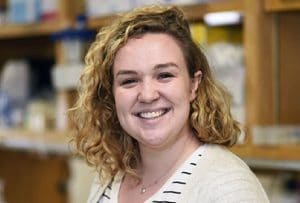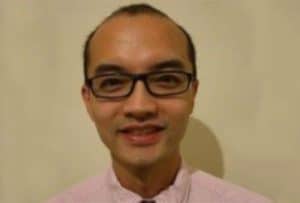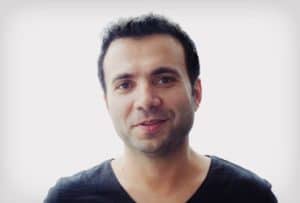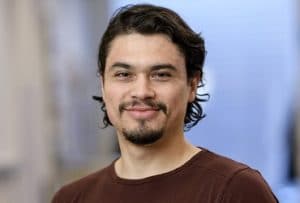AACR-CRUK Transatlantic Fellowships: Supporting early-career investigators to shape the future of global cancer research
With members from 129 out of 193 countries, the AACR has a unique opportunity to make a global impact ̶ to train and empower the international workforce. In partnership with the largest independent cancer research charity in the UK, Cancer Research UK (CRUK), the two organizations established a joint program for trans-Atlantic postdoctoral fellowship exchange to facilitate collaborations between leading research institutions in the US and UK. Launched in 2019, the AACR-CRUK Transatlantic Fellowships support promising postdoctoral cancer researchers at US and UK research institutions to carry out a portion of their postdoctoral research at a research institution in the UK or the US, respectively. The AACR-CRUK fellows share the impact of this unique program on their careers and research.

Dr. Hadley Sheppard decided to move across the Atlantic after finishing her PhD at Baylor College of Medicine in Texas. She joined Professor Paul Workman’s group at the Institute of Cancer Research (ICR) to pursue research on chordoma, a rare type of primary bone cancer. She introduced chordoma research to the lab, which had “extensive experience in drug discovery” but had never worked on chordoma. Dr. Sheppard notes the importance of her award, “the AACR-CRUK Transatlantic Fellowship has been integral to my scientific independence.”
During her PhD, Dr. Sheppard studied an intracellular protein called brachyury, the overexpression of which leads to the development of bone cancer. Building on the foundation she established during her graduate studies, her goal is to find ways to turn brachyury off. In her poster presentation at the recent AACR Annual Meeting, she shared how two different approaches of blocking brachyury’s action, targeted brachyury degradation and transcriptional CDK inhibition, can either cause senescence or apoptosis, respectively. She is optimistic that she will discover new therapies to turn off brachyury and that her research will directly impact clinical care through the initiation of a chordoma clinical trial.

Justin Ching Ting Loke, BM BCh, PhD, a hematologist and clinician scientist from the University of Birmingham, Medical and Dental Sciences, seeks to understand how co-mutation of ASXL1 and RUNX1 contributes to worse prognosis and disease relapse in acute myelogenous leukemia (AML). The AACR-CRUK grant has paved the way for him to pursue research full-time as a postdoctoral fellow at the Dana-Farber Cancer Institute under the mentorship of Dr. Benjamin L. Ebert. In this new training environment, he has been able to develop new collaborations and learn new techniques. Dr. Loke is confident that his work will yield novel insights into treatment response/resistance mechanisms in AML patients with ASXL1/RUNX1 mutations.

Geylan Can obtained his PhD from the Gordon Institute, University of Cambridge in the UK, where he investigated the role of DNA damage checkpoint during the cell cycle. With the support of the AACR-CRUK Transatlantic fellowship, he is studying the regulation of DNA replication in mitosis at Harvard Medical School. By using an unbiased proteomics approach, as well as candidate screening, he aims to discover new factors that are required for the regulation of DNA replication in mitosis and to elucidate the role of these factors in genomic rearrangement at common fragile sites.

Alejandro Jiménez-Sánchez, PhD, is a bioinformatician and graduate of the University of Cambridge, in the UK. While a graduate student, he used computational methods to analyze single-cell genomic data obtained from pancreatic adenocarcinoma patients. With this background, he is applying computational approaches to tumor data from human autopsies, to elucidate the molecular basis of pancreatic cancer metastasis. He is also exploring senescence induction as a therapeutic strategy for pancreatic cancer.
In his poster presentation at the recent AACR Annual Meeting, he shared their findings on non-random gene programs that may be required for pancreatic cancer cells to metastasize, including those that appear to be associated to metastasis to a particular tissue site.
As Dr. Jiménez-Sánchez pursues his post-doctoral research under the joint supervision of Dr. Dana Pe’er at the Memorial Sloan Kettering Institute in New York and Dr. Charles Swanton at the Francis Crick Institute in London in the UK, he emphasizes the importance of being an active contributor in the global research community. “The AACR-CRUK Transatlantic fellowship has strengthened my ties to the cancer research communities in the US and UK. Becoming an awardee of both organizations has ensured that I remain active in attending, presenting, and sharing my research at AACR and CRUK conferences. This connection will be crucial for my future steps toward a junior faculty position or other research positions.”